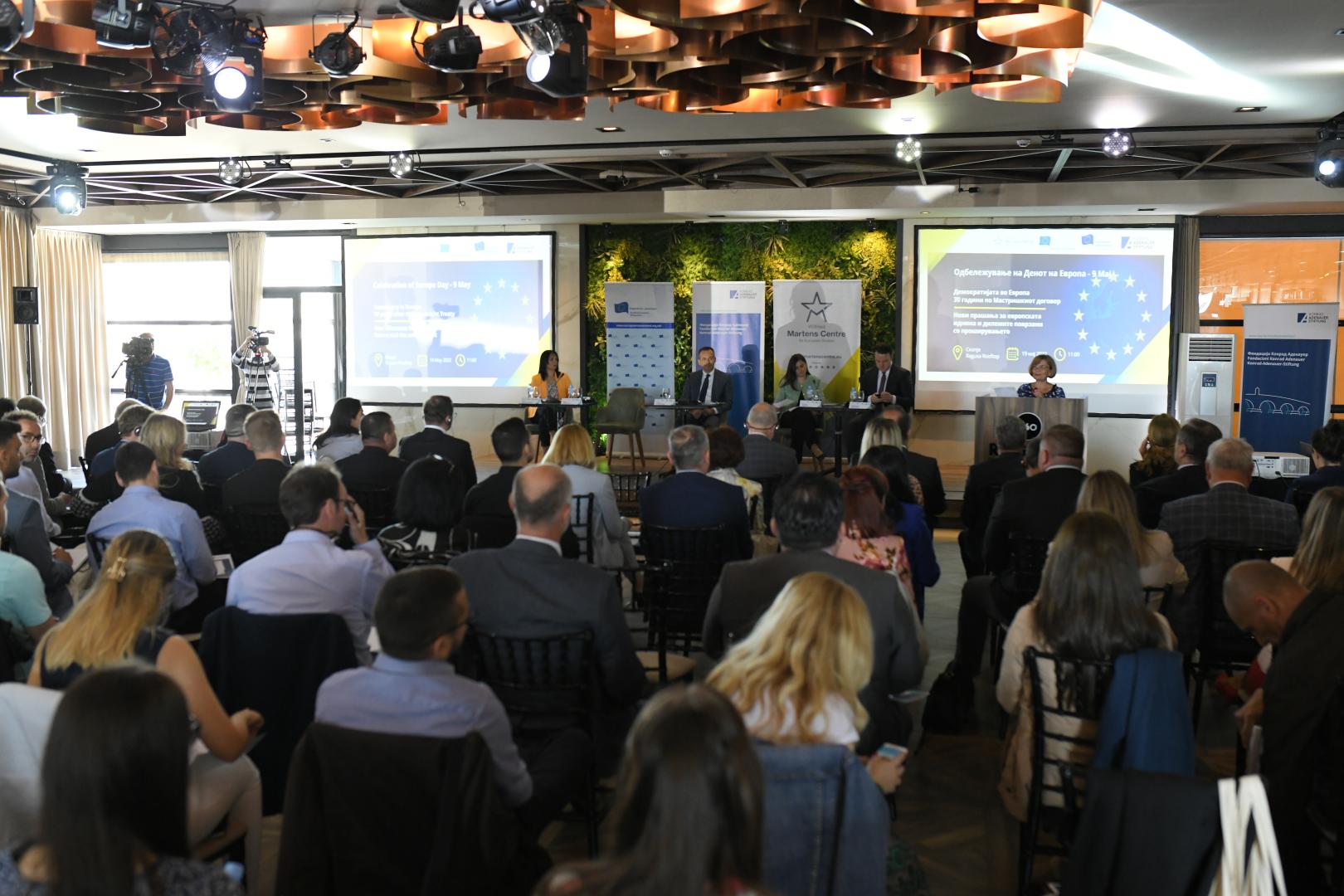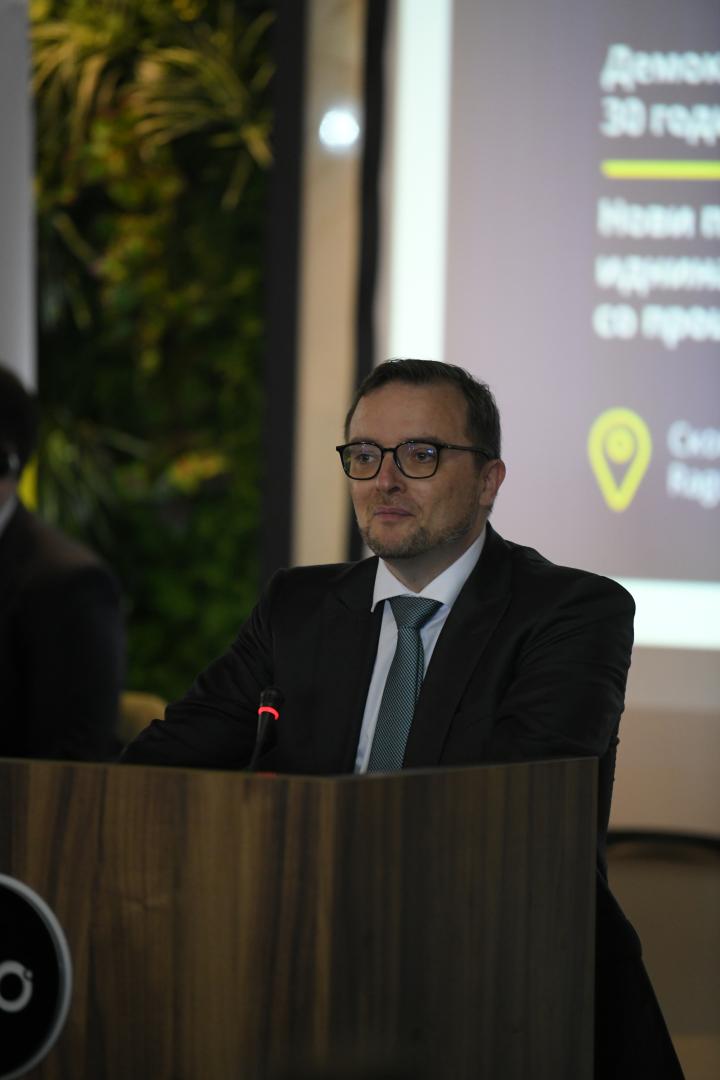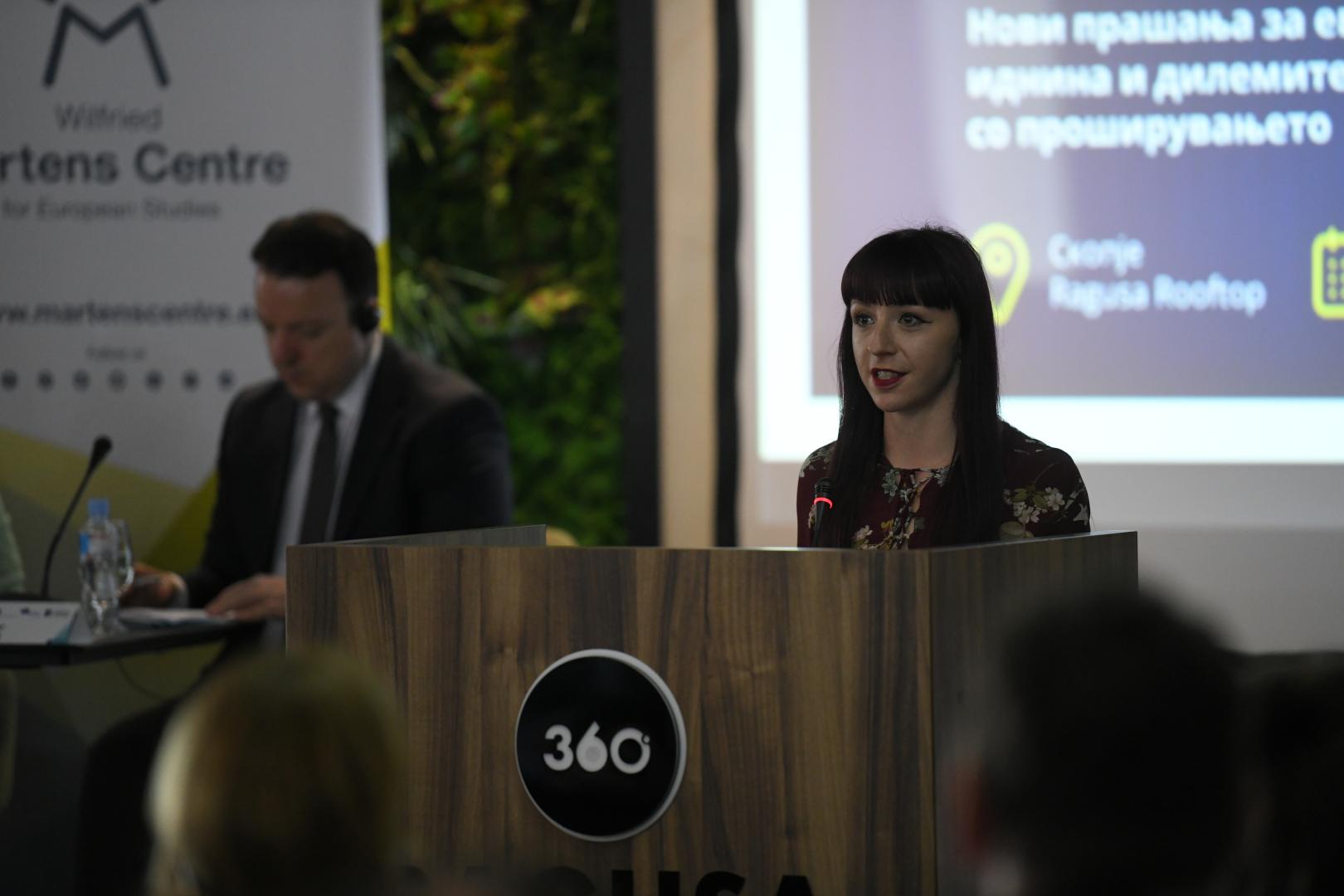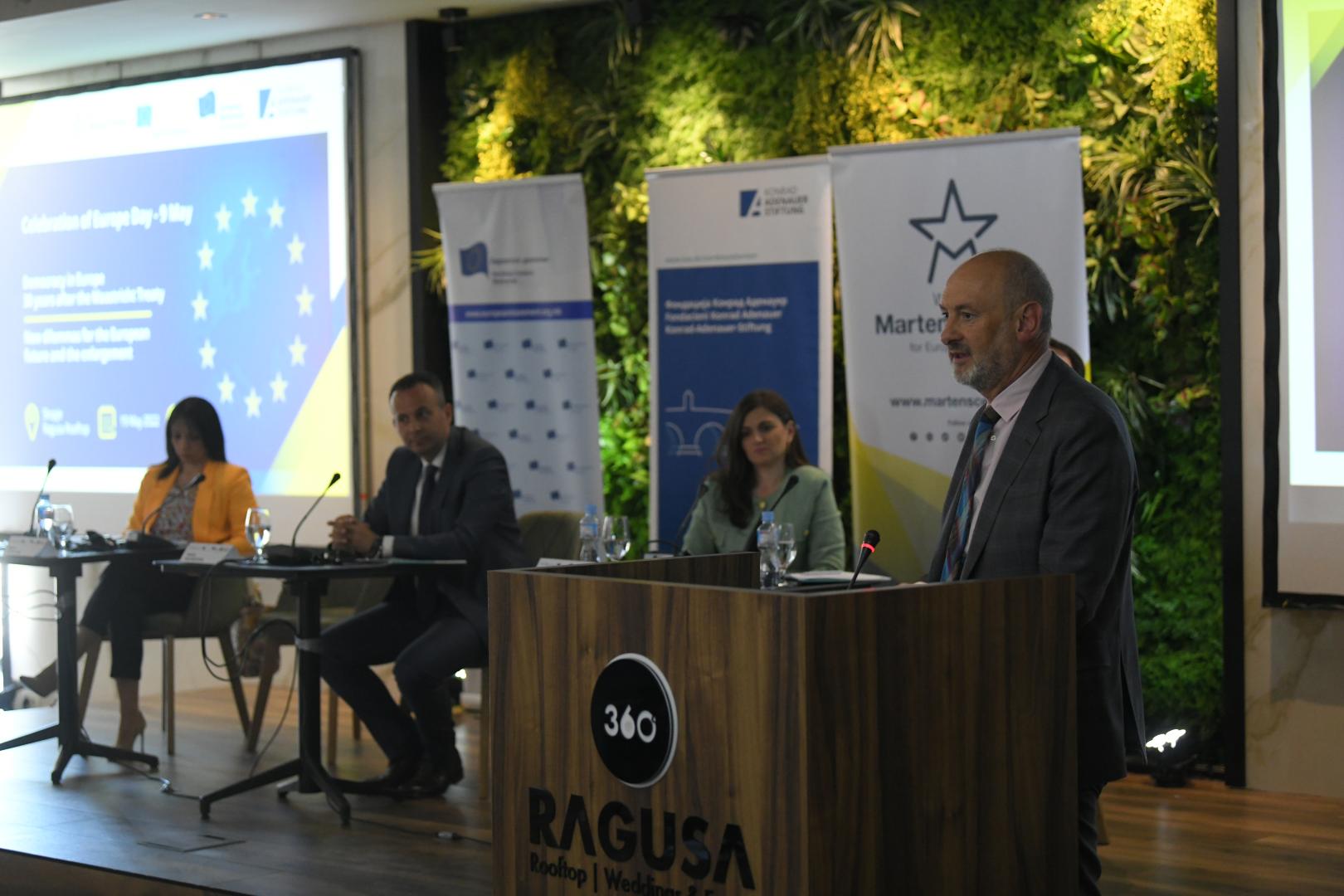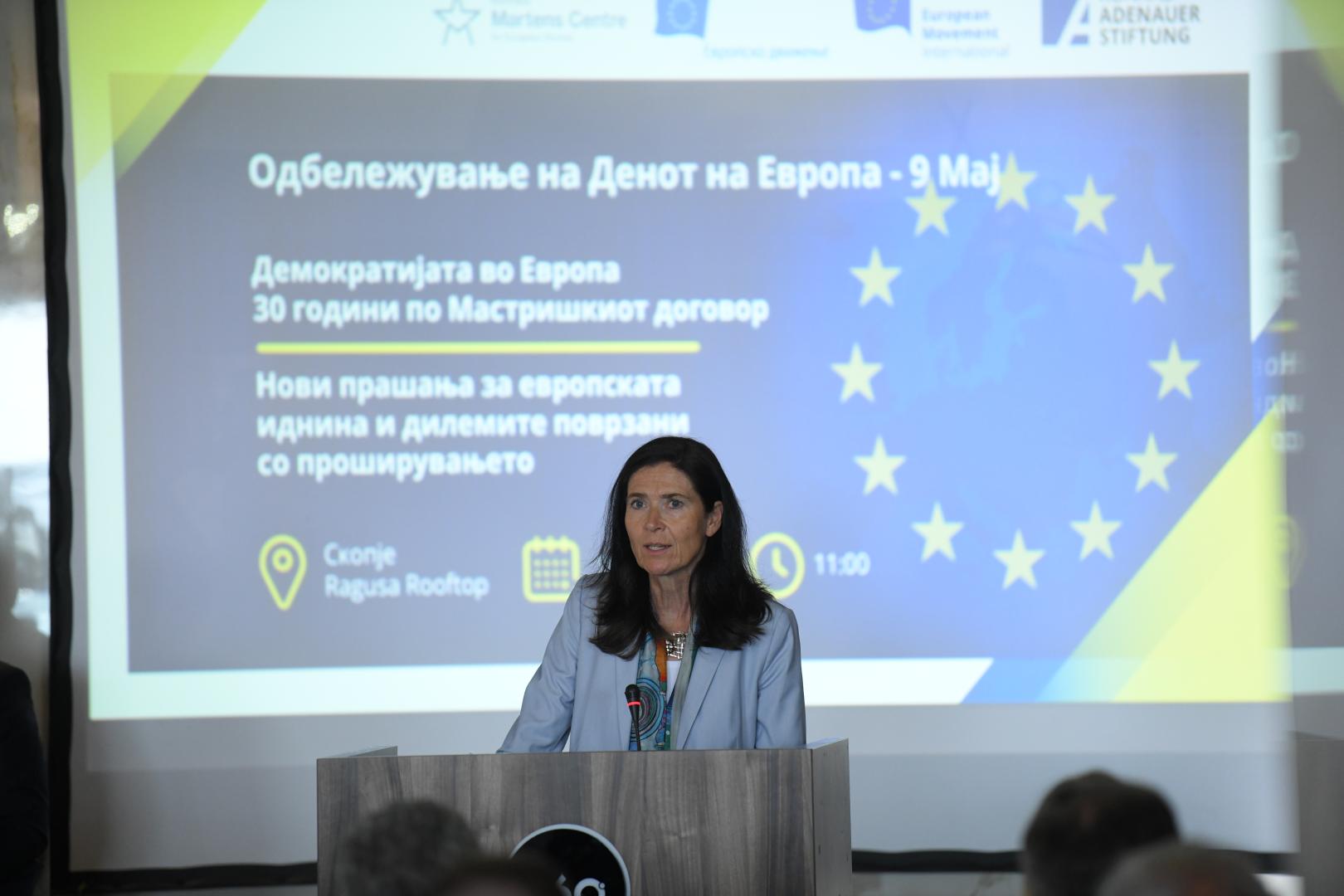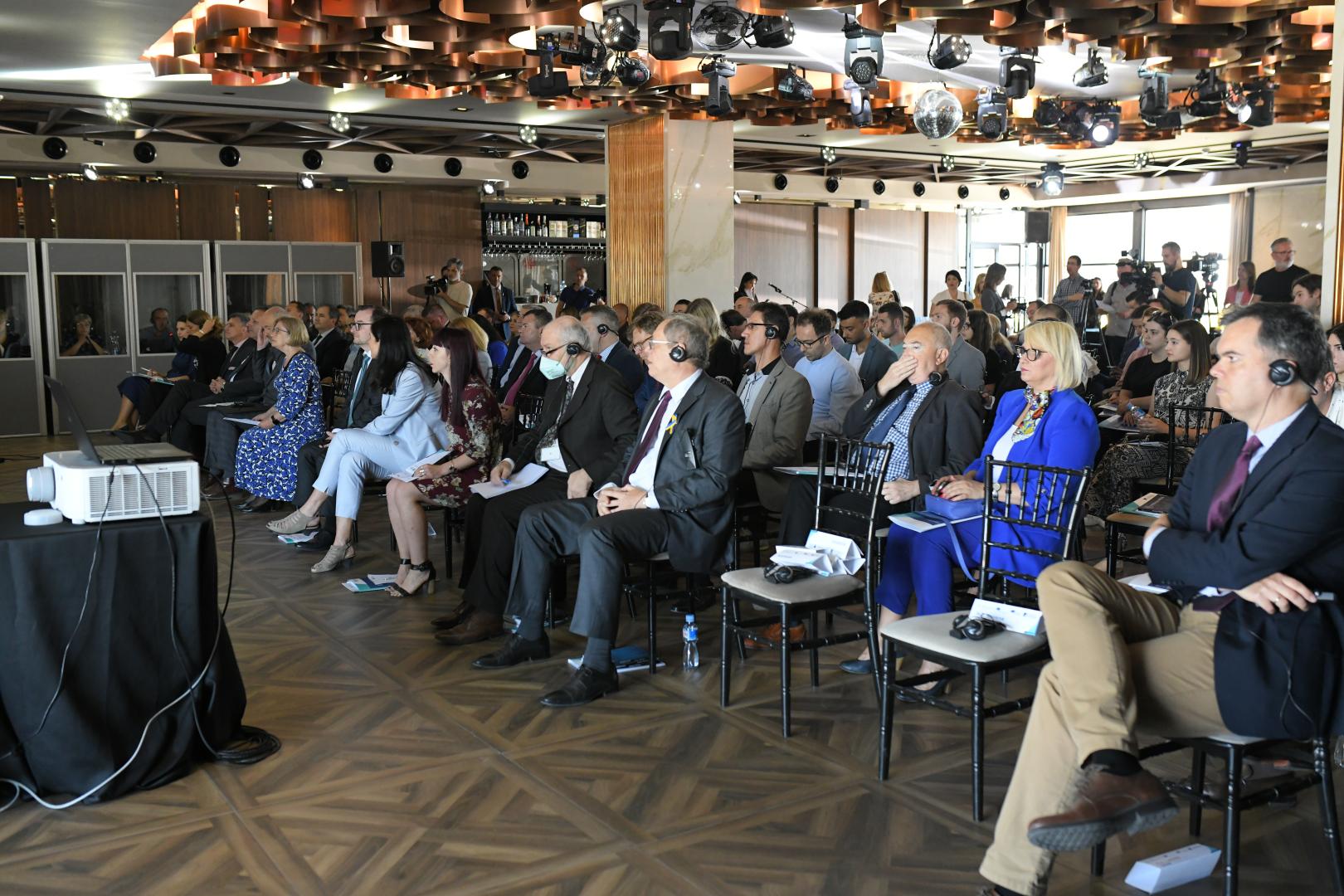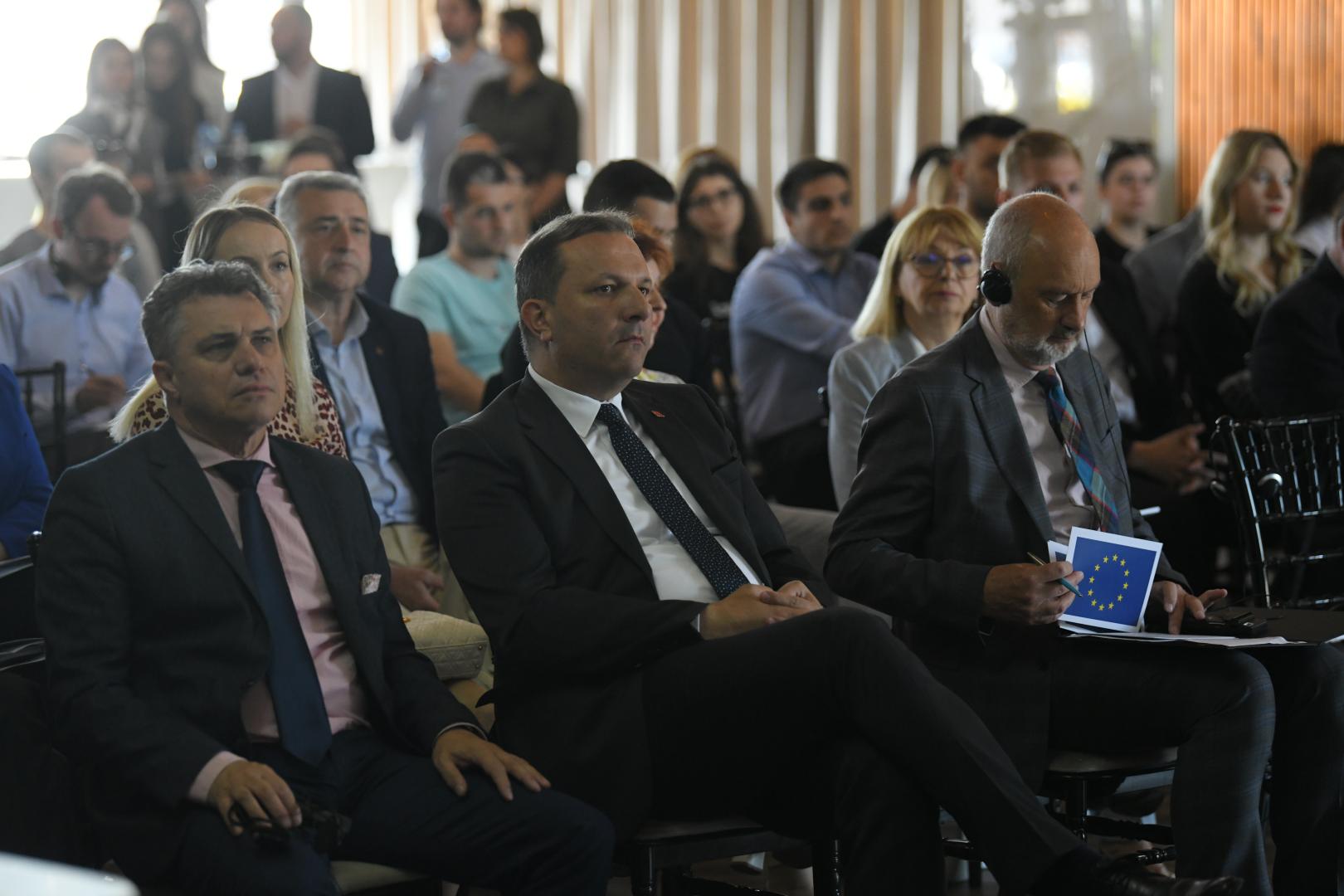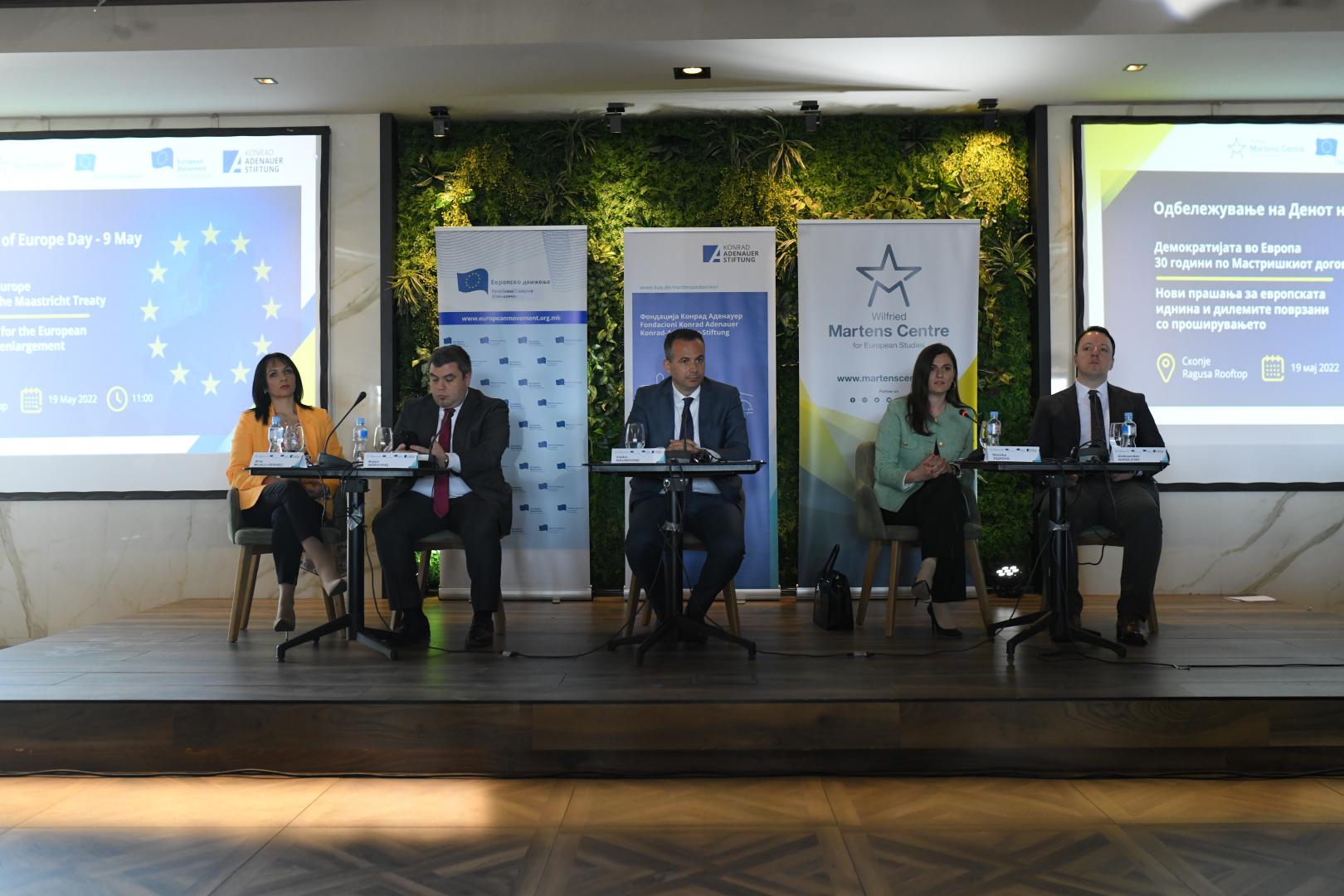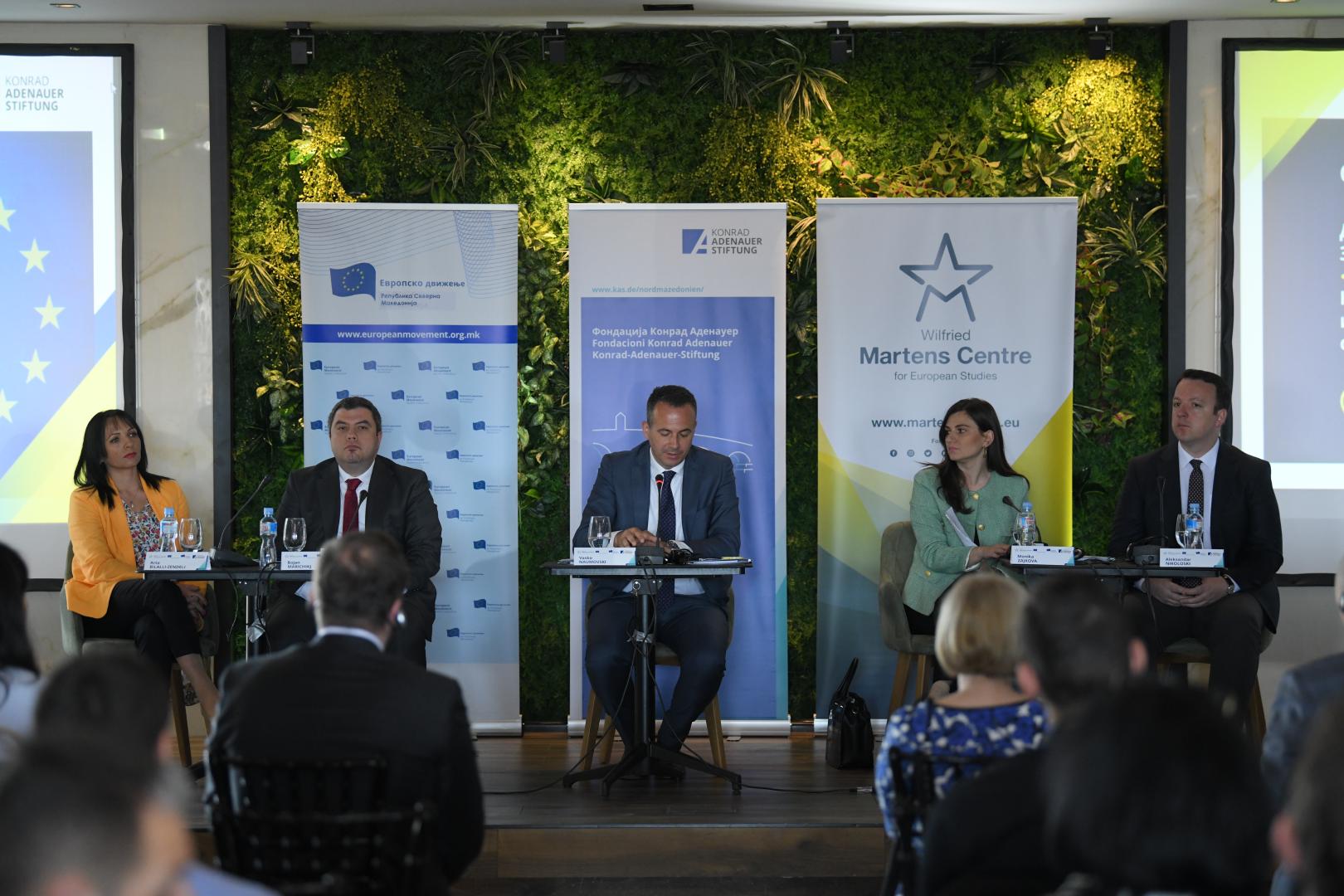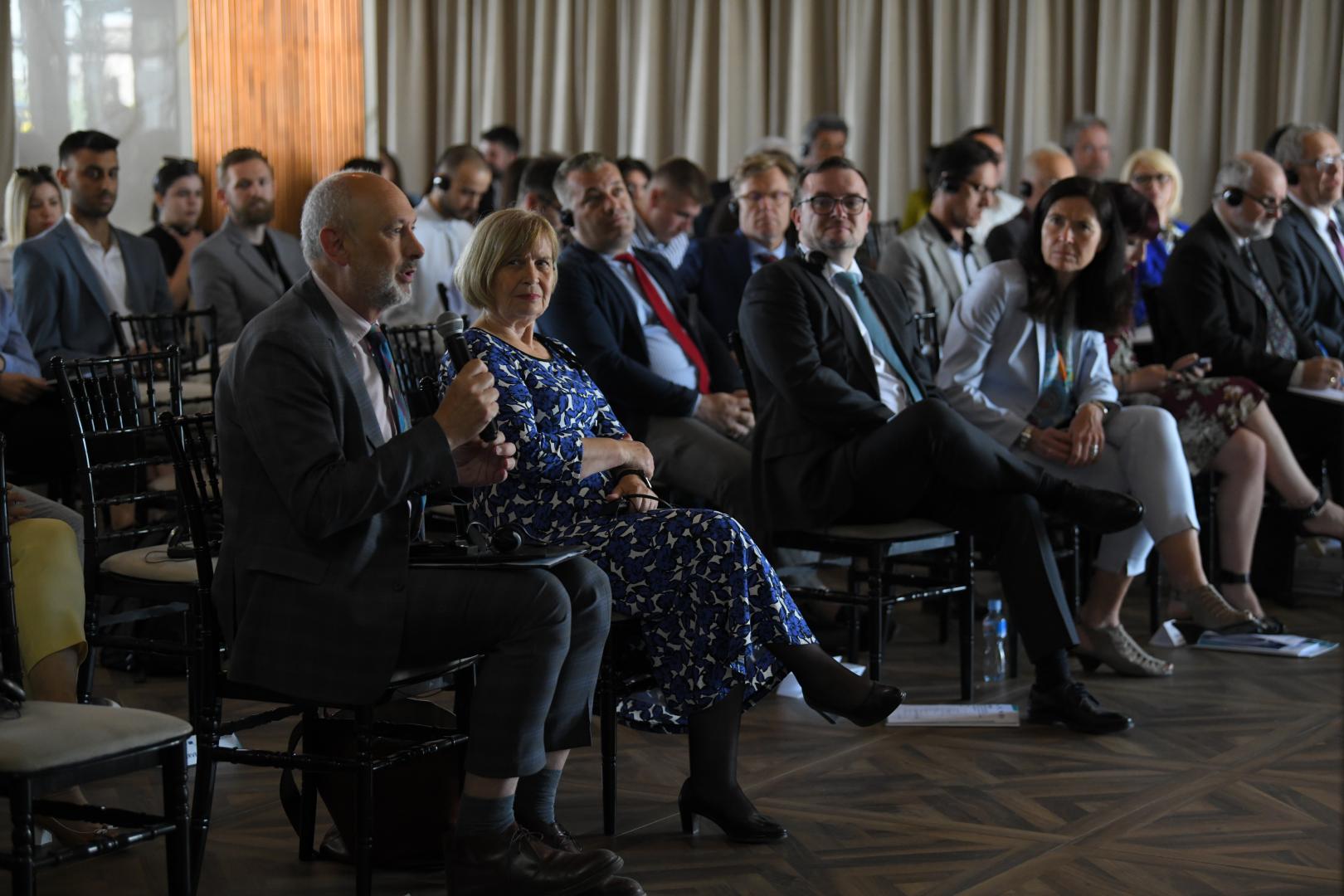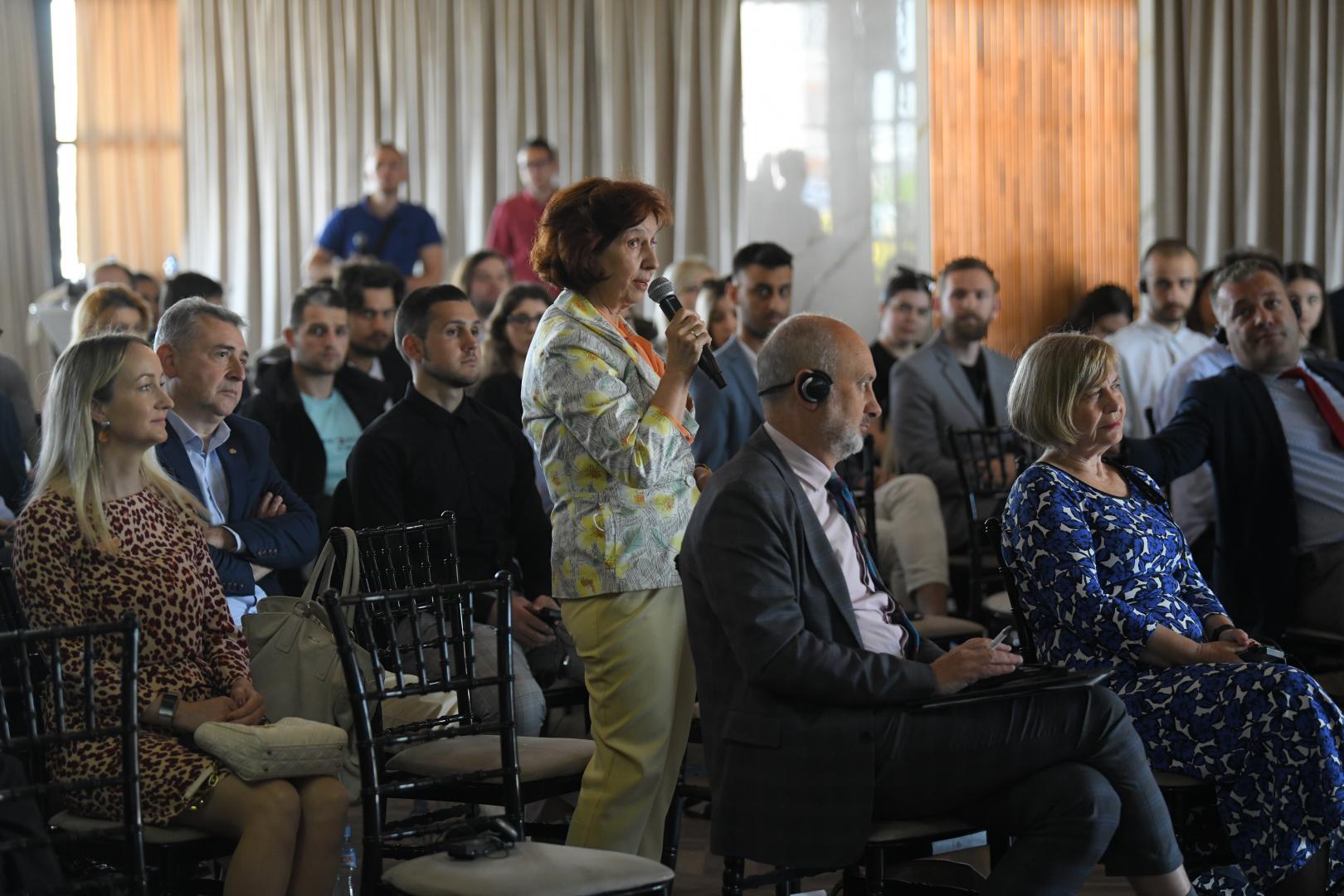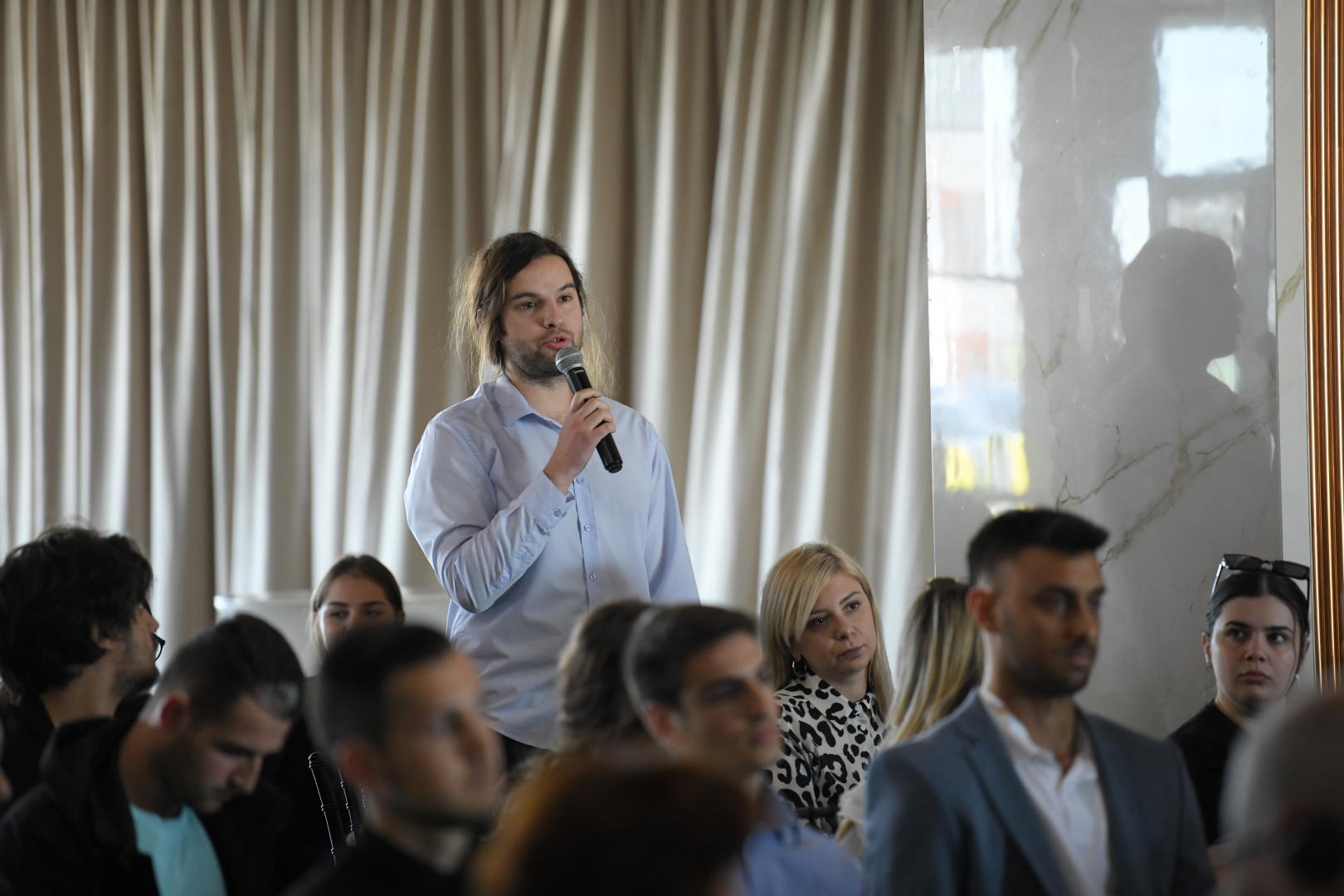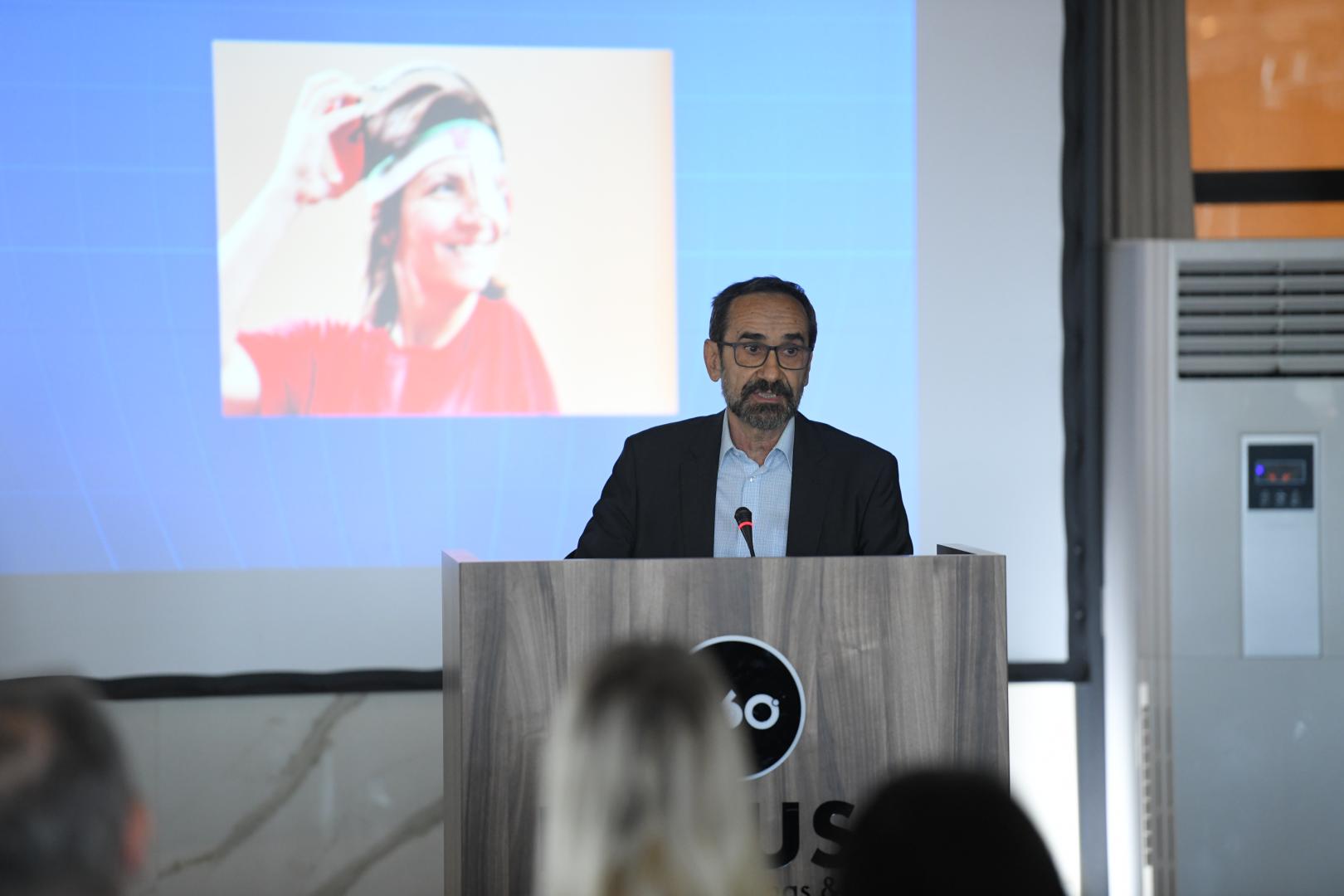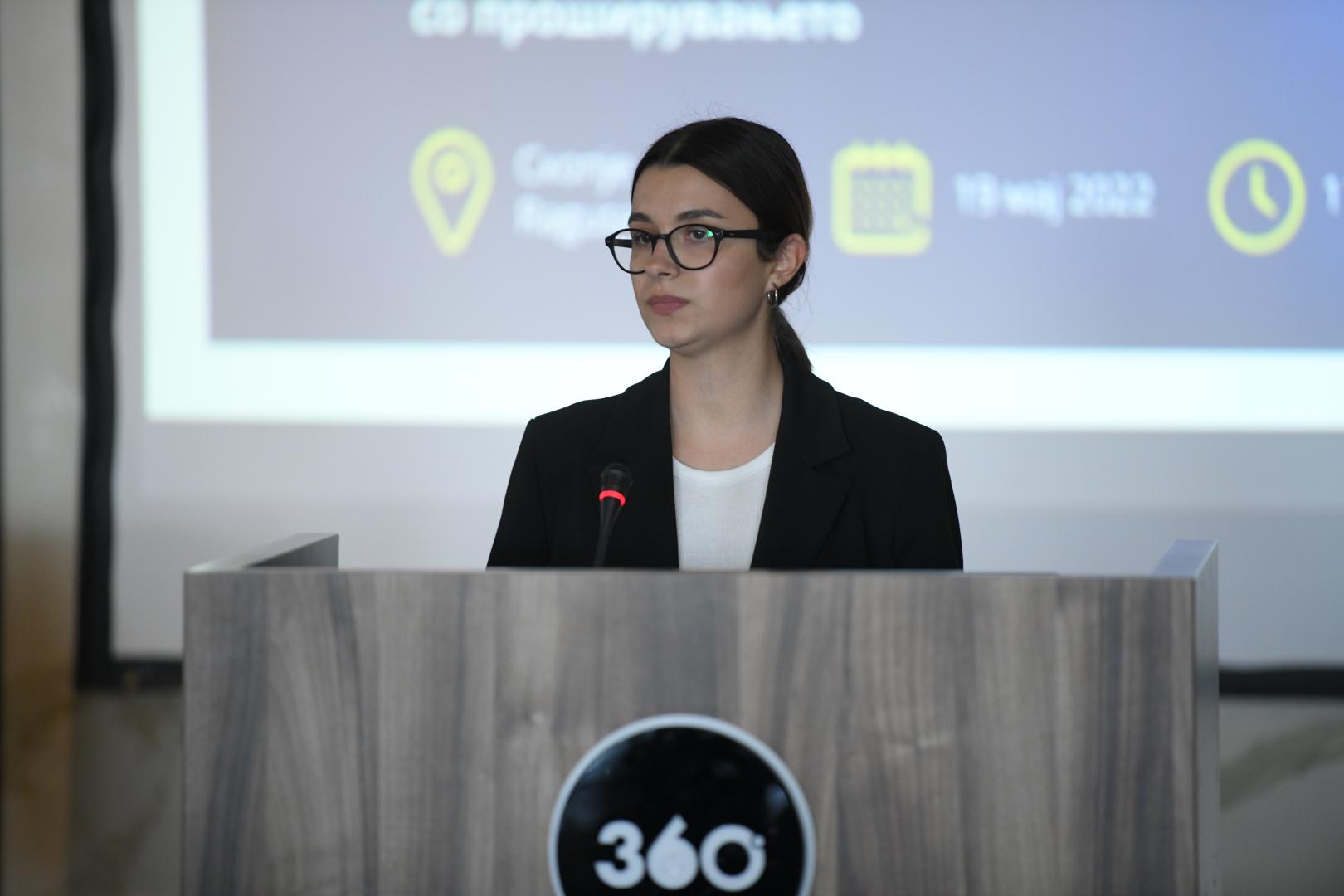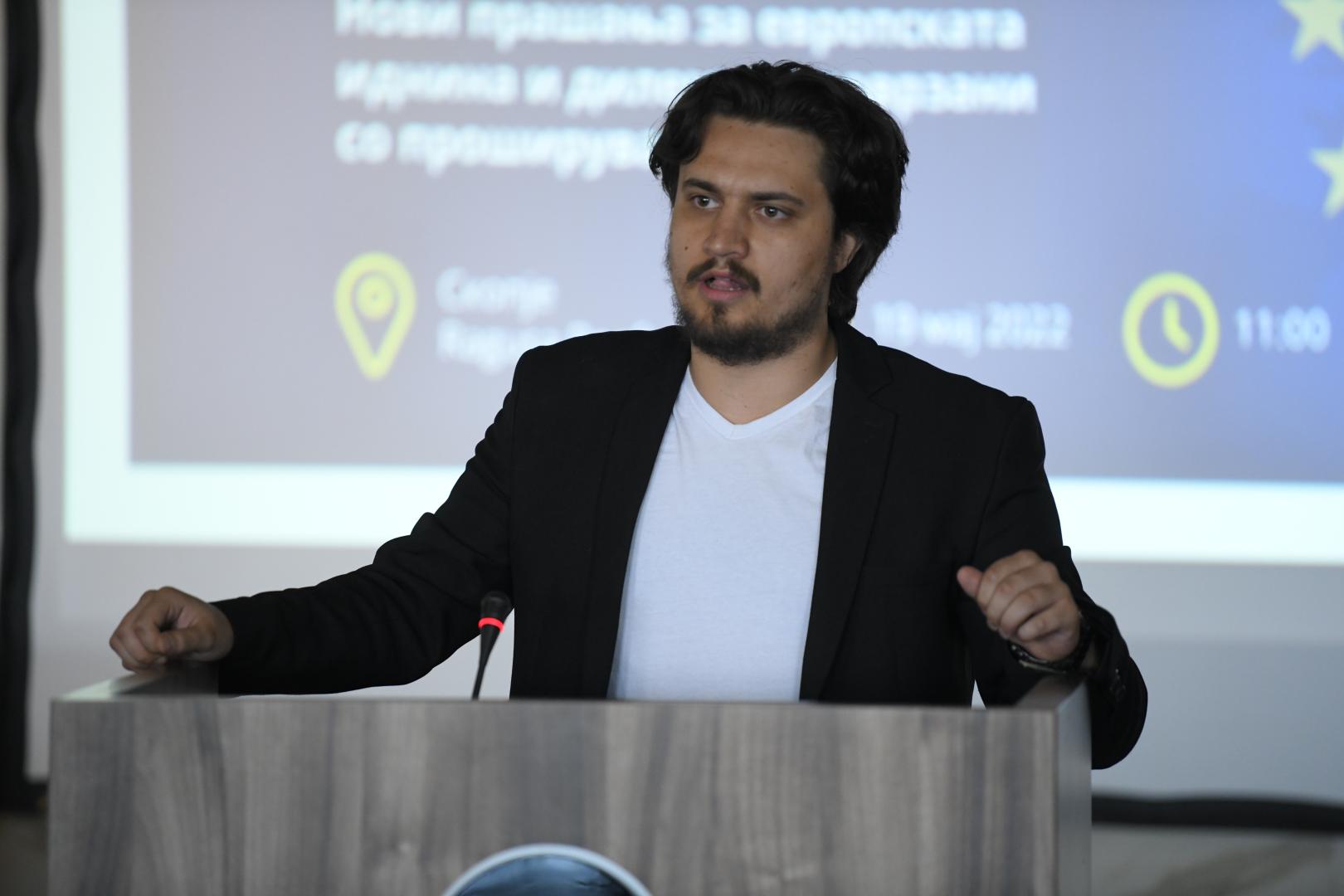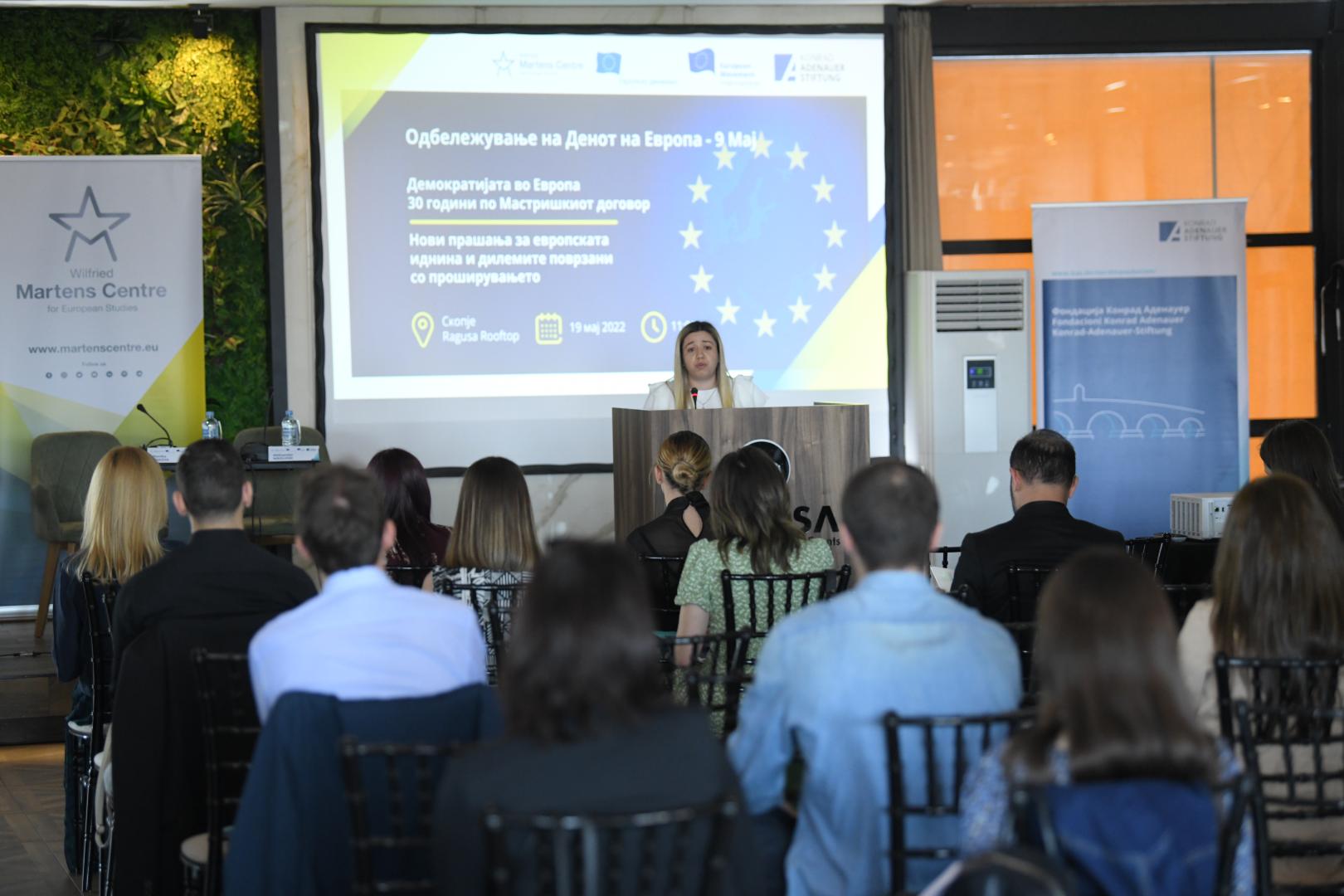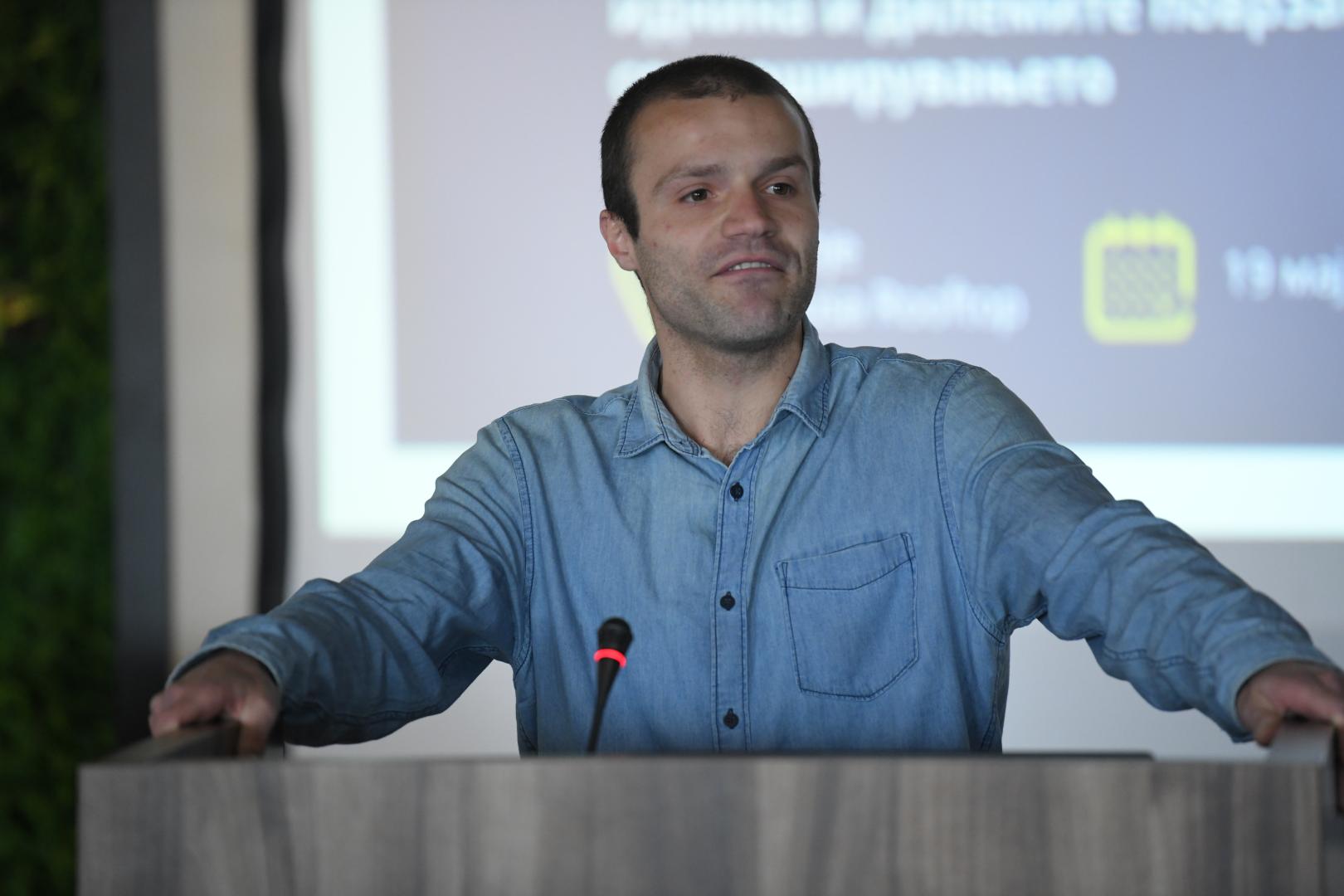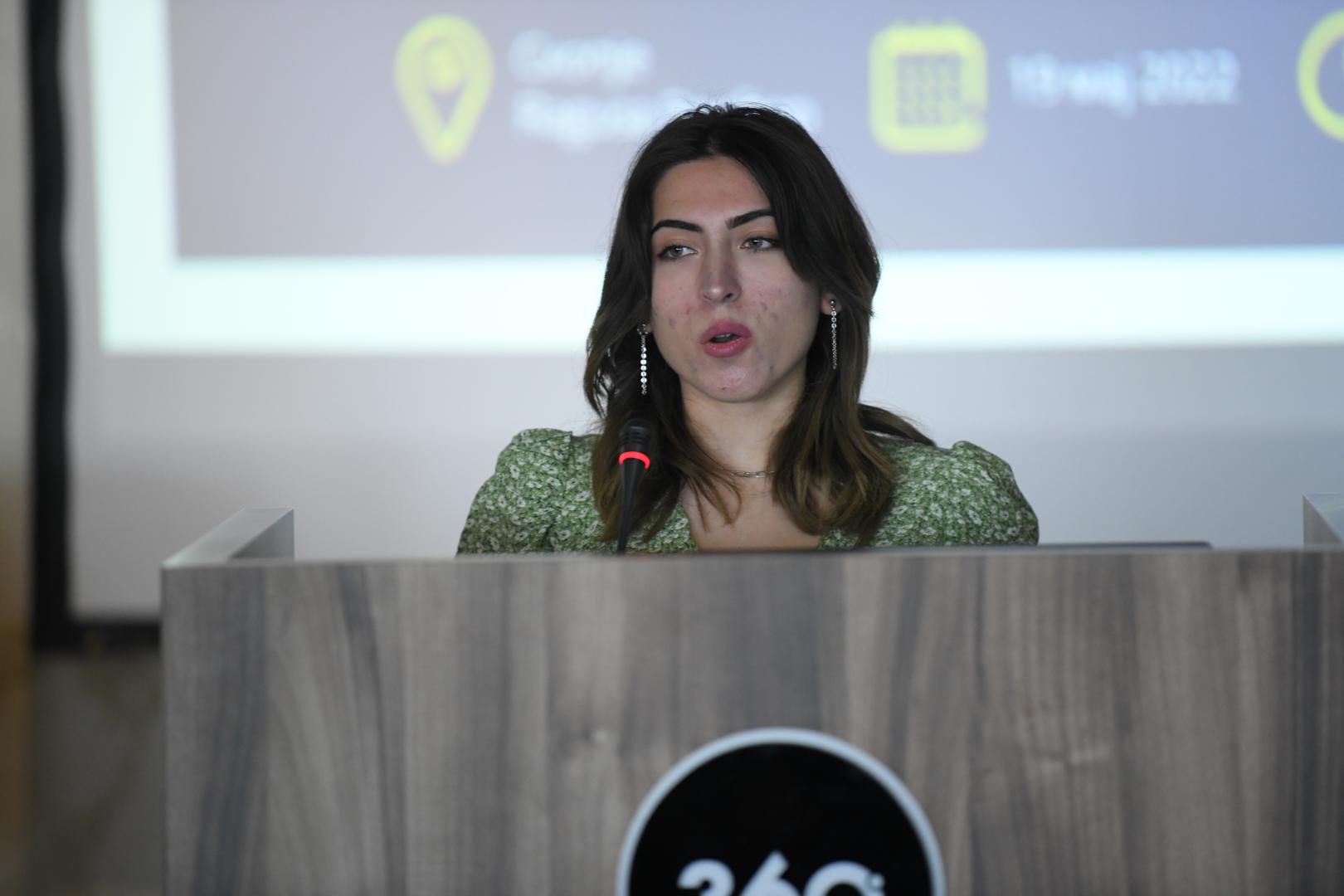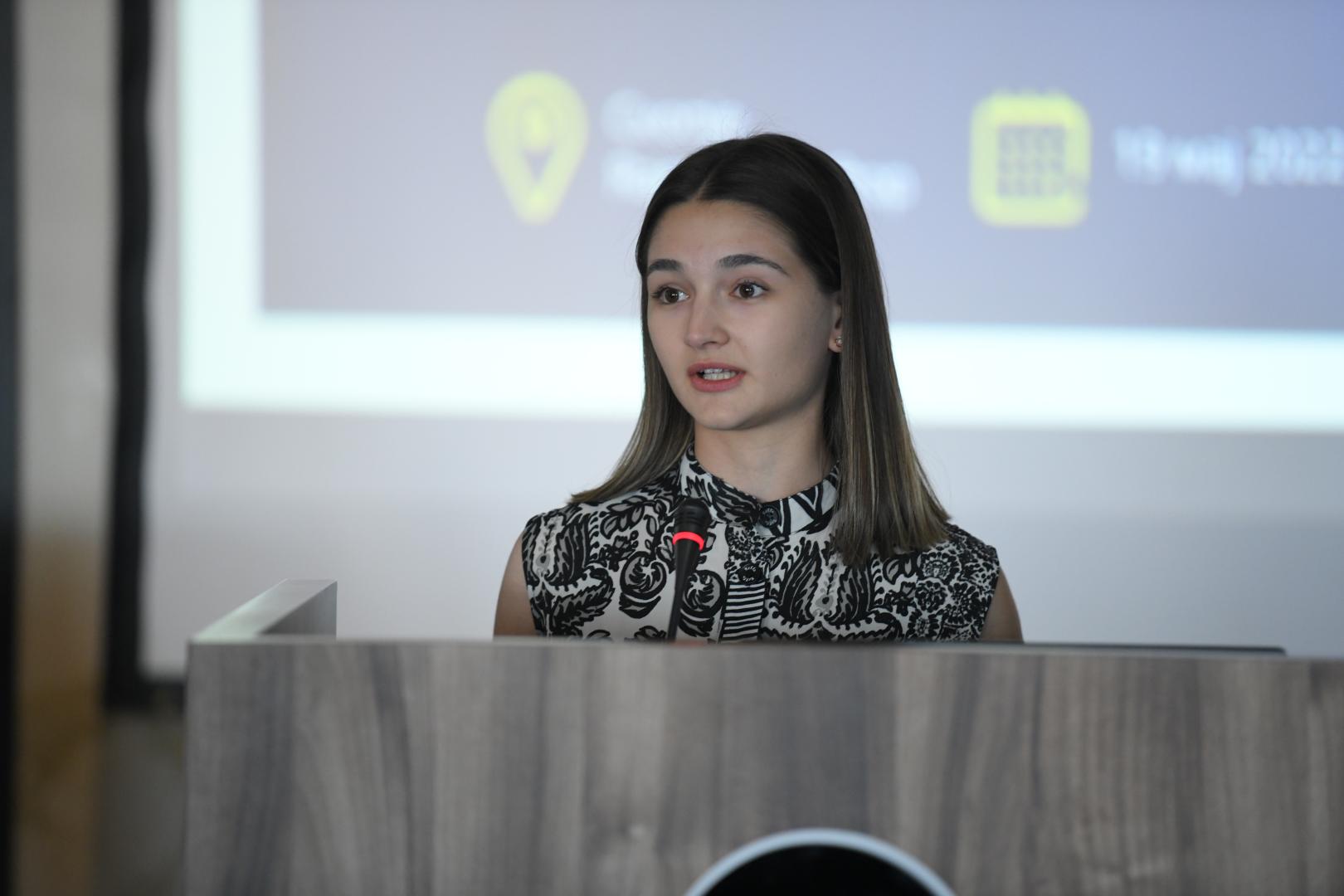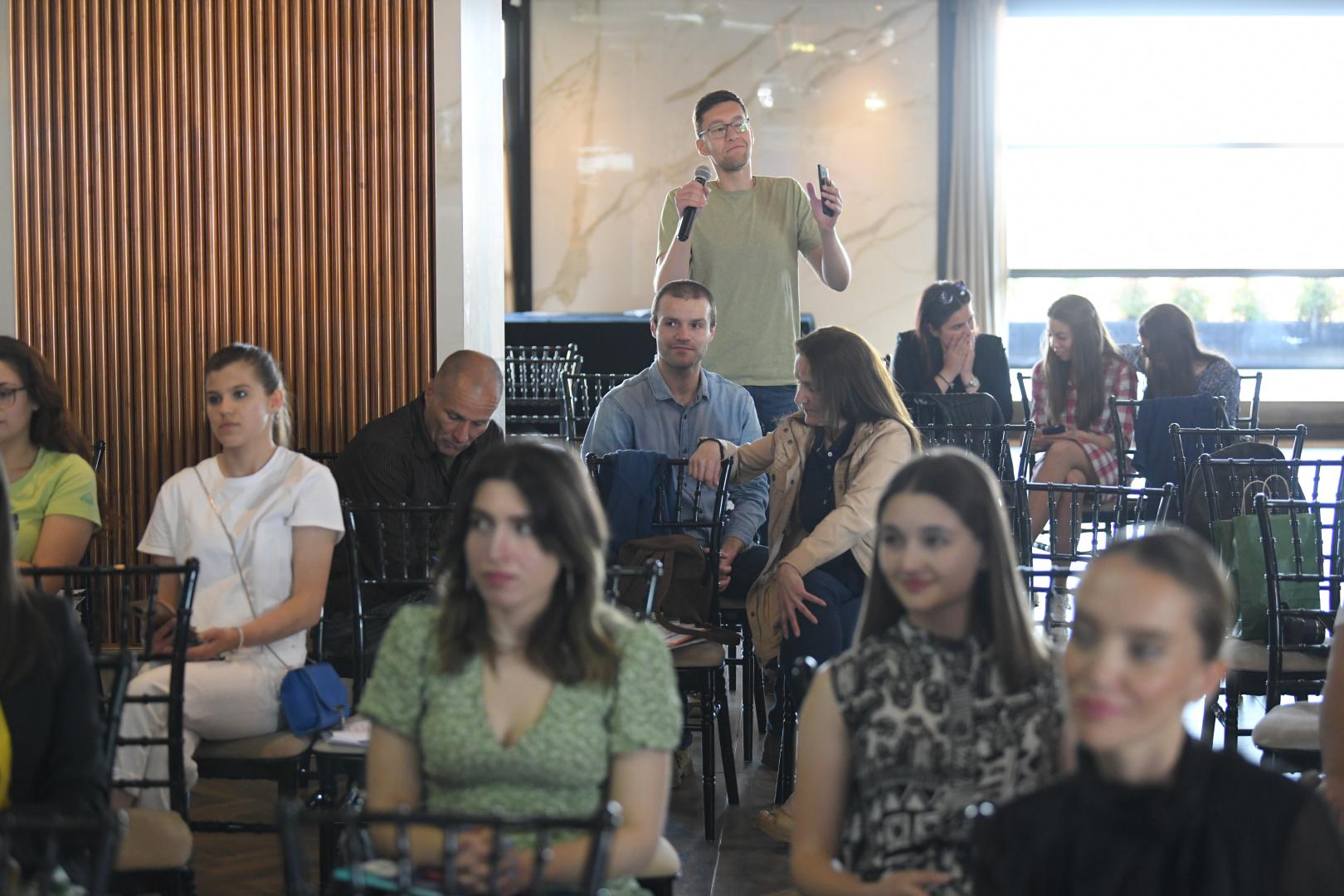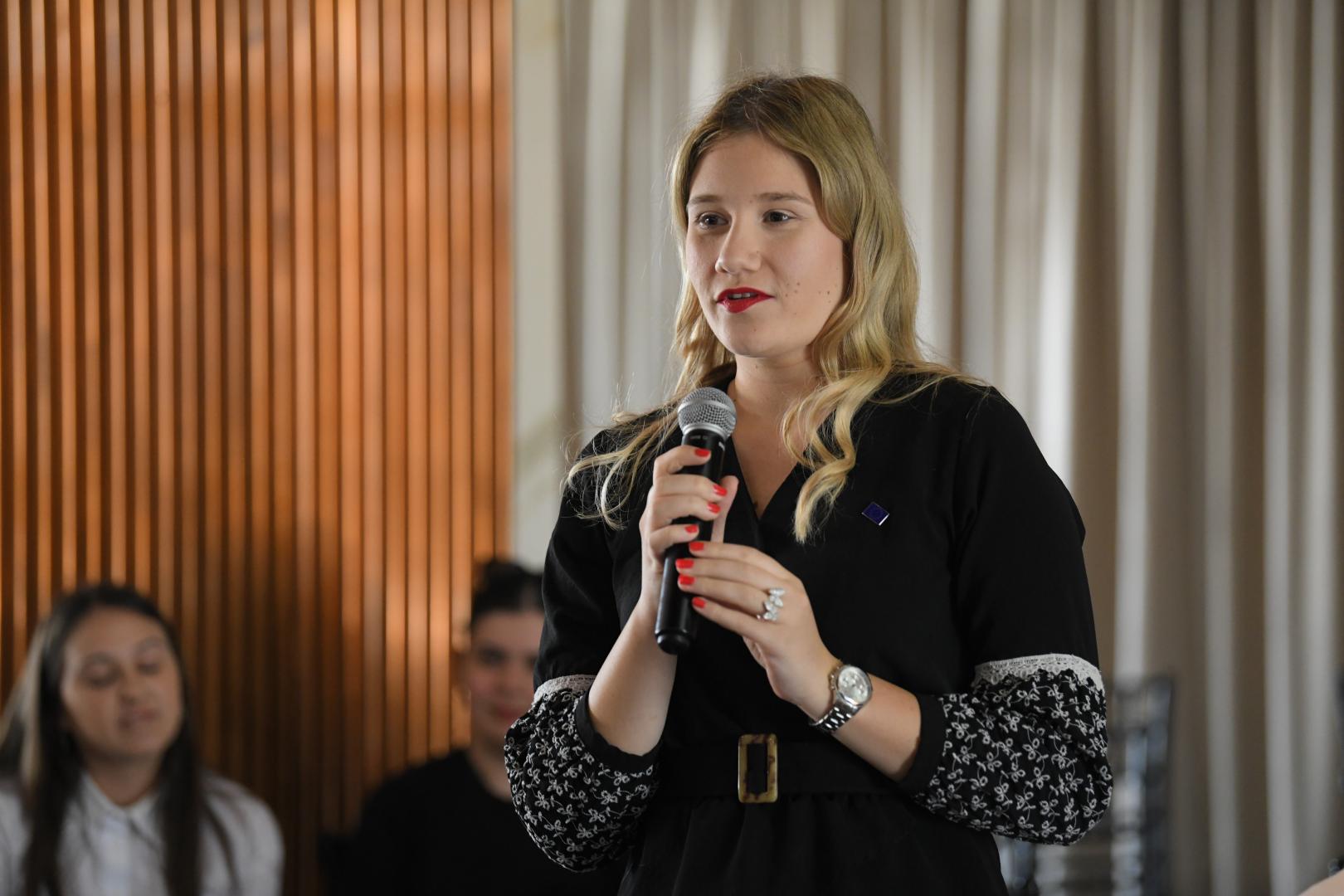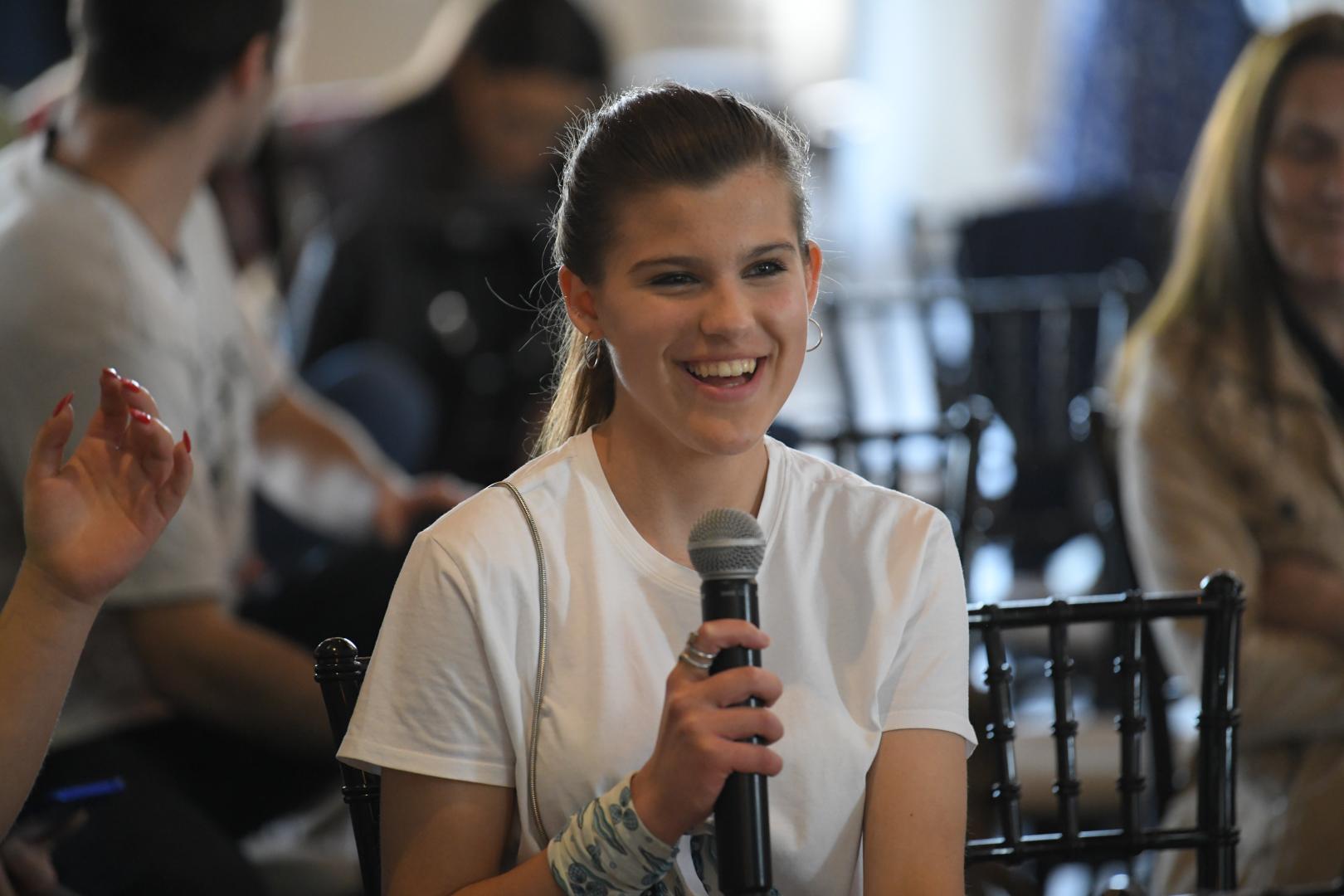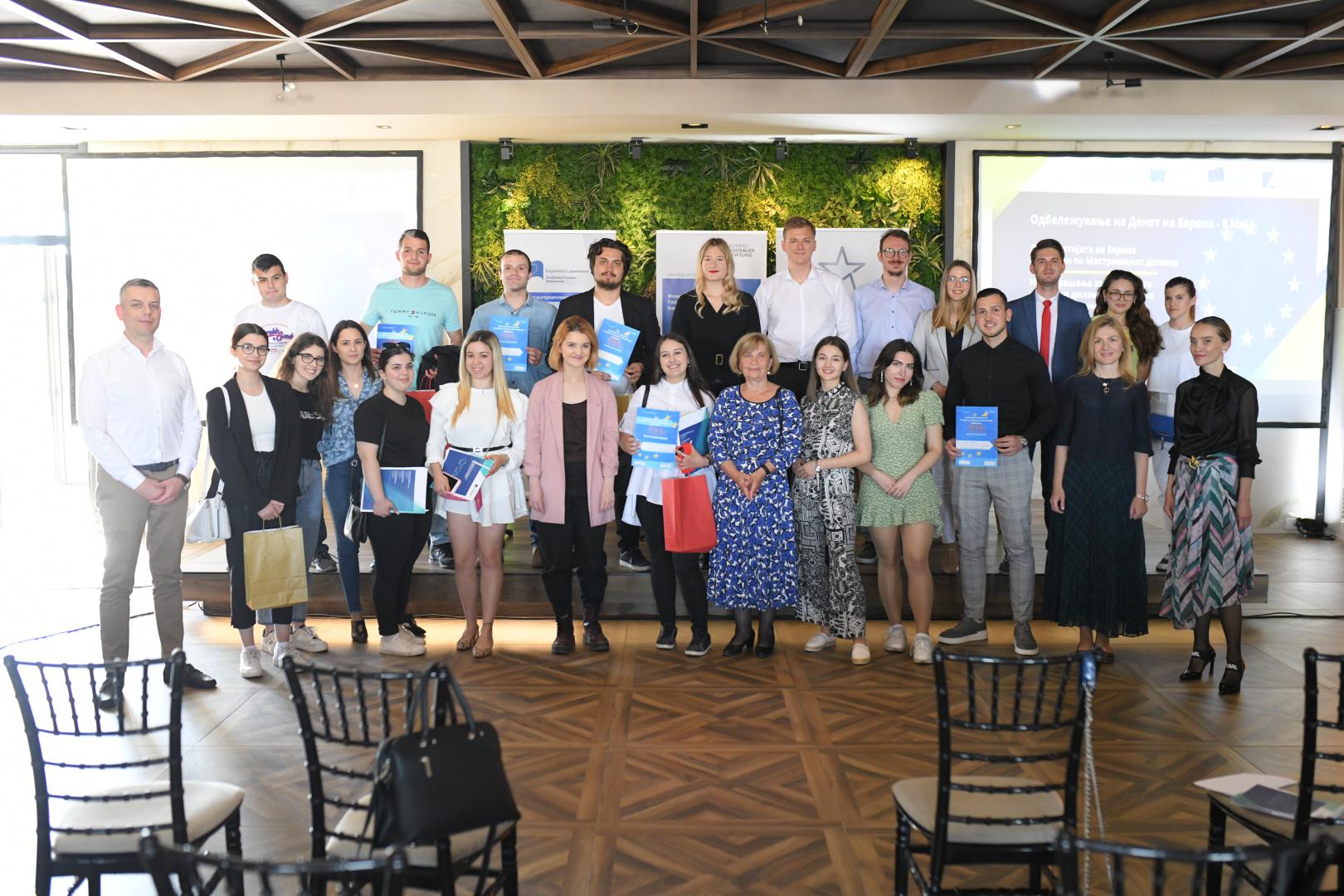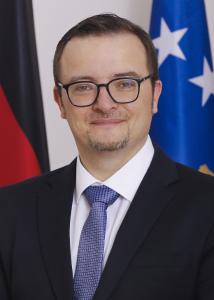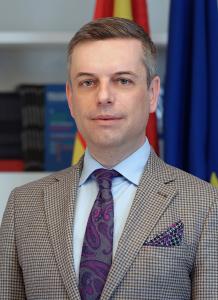The event began with a panel discussion on "Democracy in Europe - 30 years after the Maastricht Treaty: New dilemmas for the European future and the enlargement". The panel discussion was attended by representatives of the government, ministers, MPs, representatives of the diplomatic corps, including representatives of the NGO sector, as well as students.
The event began with welcoming addresses by Mileva Gjurovska, President of the European Movement, who pointed out that every day is Europe Day if we work to bring people together and preserve the benefits of civilization.
The official representative of the Konrad Adenauer Foundation, Daniel Brаun, said Russia's attack on Ukraine, which violates all international law, showed that countries that share the values of democracy and human rights must unite even more strongly, which would mean that it is time for the Western Balkans to finally step on the path of the EU accession. Bilateral conflicts between countries should be considered secondary and should be resolved as equal partners in friendship within the EU, and not serve as an obstacle to the primary goal - European integration.
In her welcoming address, Katerina Jakimovska, Senior Event Officer at the Wilfried Martens Centre for European Studies, noted that this year the celebration of Europe Day took place in a bitter atmosphere due to the conflict in Ukraine and that its implications were strongly felt in the Western Balkans, a region located in a crossroad, which increasingly raises the question ‘whether this region will be able to maintain the European course since Europe is our task and mission’.
At the panel discussion, a keynote speech was given by David Geer, Head of Delegation of the European Union to the Republic of North Macedonia. In his address, he pointed out that the pandemic showed the capacity for assistance and solidarity of the EU, but also that the Maastricht Treaty had laid the foundations of this Europe in which we currently live. The Ambassador of the Federal Republic of Germany, Anke Holstein, also gave a keynote speech, emphasizing that the Maastricht Treaty provided most of the benefits that we consider normal and natural today.
Bojan Marichikj, Deputy Prime Minister for European Affairs, was the first to speak at the panel discussion. In his speech, he emphasized that there were no new or old dilemmas and that the path of North Macedonia was clearly paved leading toward full membership in the European Union. At the same time, he pointed out that the negotiations usually lasted for 9 years, while Serbia and Montenegro are negotiating for 10 years and are not close to full membership, which called into question the EU's idea of integrating the region into the union.
He was followed by Aleksandar Nikolovski, President of the National European Integration Council, who commented on the new plan of the President of France, Emmanuel Macron, for the European Union and the European Political Community, as a kind of loose alliance, emphasizing that it had to be clearly stated that the country was not interested in any alternatives to the European Union because generations of Macedonians had invested in fulfilling that decades-old dream.
Deputy Chairperson of the Committee on European Affairs, Arta Bilalli-Zendeli, in her speech said that she was proud that the country had been among the first to accept the sanctions against Russia, which had clearly shown which side it is on. According to her, the final start of negotiations with North Macedonia would not only be a success for the country, but also a success for Bulgaria and the European Union, as well as the European values.
The panel was closed by Monika Zajkova, a Member of the Committee on European Affairs, who pointed out that she belonged to the generations who had dreamed of European integration all their lives, which seemed to never happen. According to her, it is true that the European Union will not solve our problems at home and that we must work hard to improve the situation. She also pointed out the initiative for the inclusion of the Western Balkan countries in the European Telecommunication Network, which was submitted to the European Commission. This initiative would abolish roaming and would contribute to a greater connection among young people, for which she appealed to the ambassadors for support.
The discussion aroused the interest of the participants, where there was a consensus that North Macedonia deserves to open the accession negotiations as soon as possible. Professor Gordana Siljanovska best described the sentiment among those present through the statement that ‘Democracy is taught inside, in the company of democrats, while outside only the ‘Hannibals’ are called to action’.
The discussion was moderated by Vasko Naumovski, former Deputy Prime Minister for European Affairs.
Within the event, the nomination for European Person of the Year was presented, which the European Movement is traditionally awarding for more than 20 years to people who spread European values in North Macedonia, but also people who promote the country in Europe and in the world. For 2021, this award will be given to the Macedonian Paralympian Olivera Nakovska-Bikova.
After the panel discussion, a student oratory competition and an EU knowledge quiz were held.
At the oratory competition on the topic "My message for a better future of my country", which was attended by students from several universities in the country, the first three places were won by the following participants:
Antonio Chonevski from the University of “St. Clement of Ohrid” - Bitola
Jovan Janev from the University of “Goce Delchev” - Štip
Ivana Krstova from the University of “Ss. Cyril and Methodius” - Skopje
While the jury was deciding on the winners of the oratory competition, an EU knowledge quiz was held, attended by university and high school students. The competition was interesting and uncertain, and in the end, the following participants won the first three places:
Nikola Chamovski from the University of “St. Clement of Ohrid” - Bitola
Andrej Tomev from the University of “Goce Delchev” - Štip
Veronika Mladenovska from the University of “Goce Delchev” - Štip
The winners were awarded commendations and awards for their success, which will motivate them to continue to upgrade in the future.



